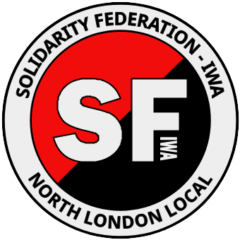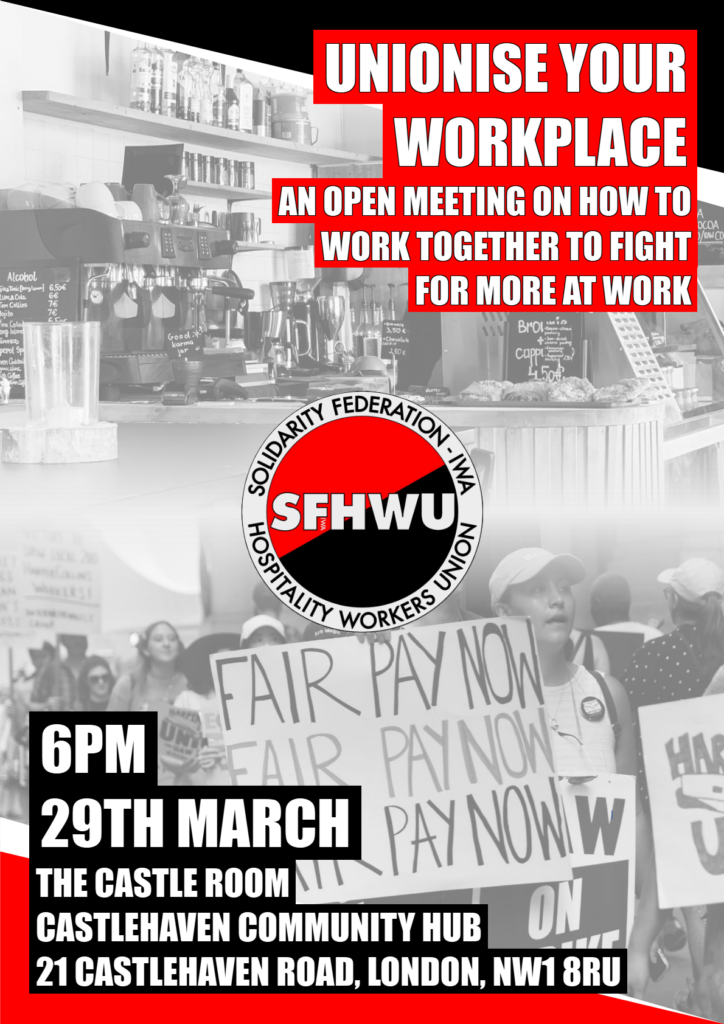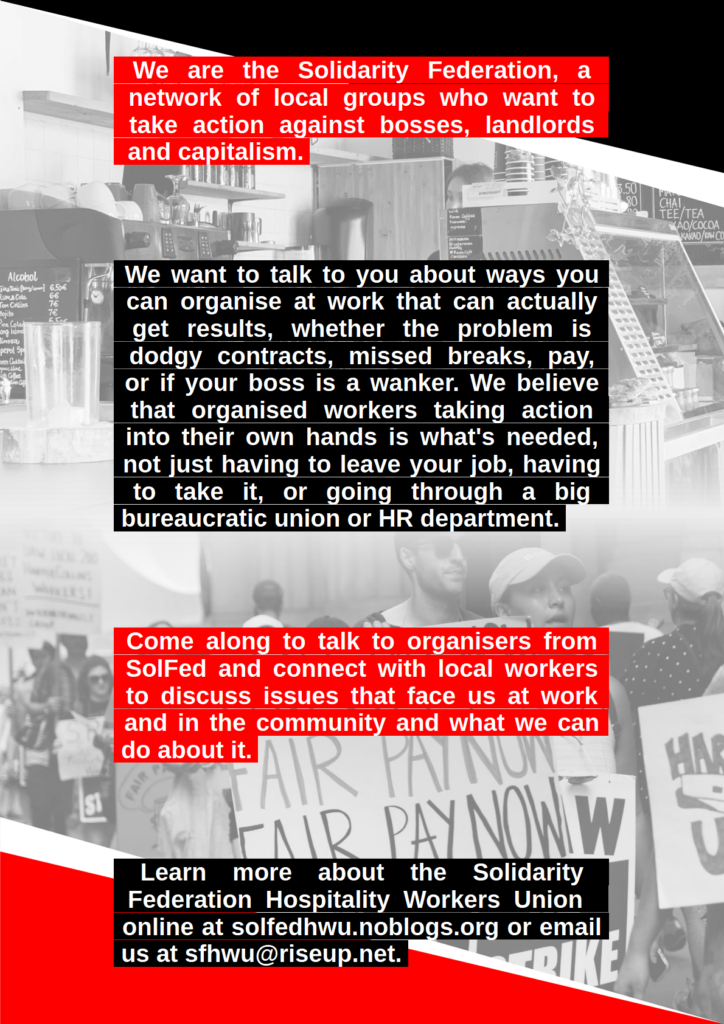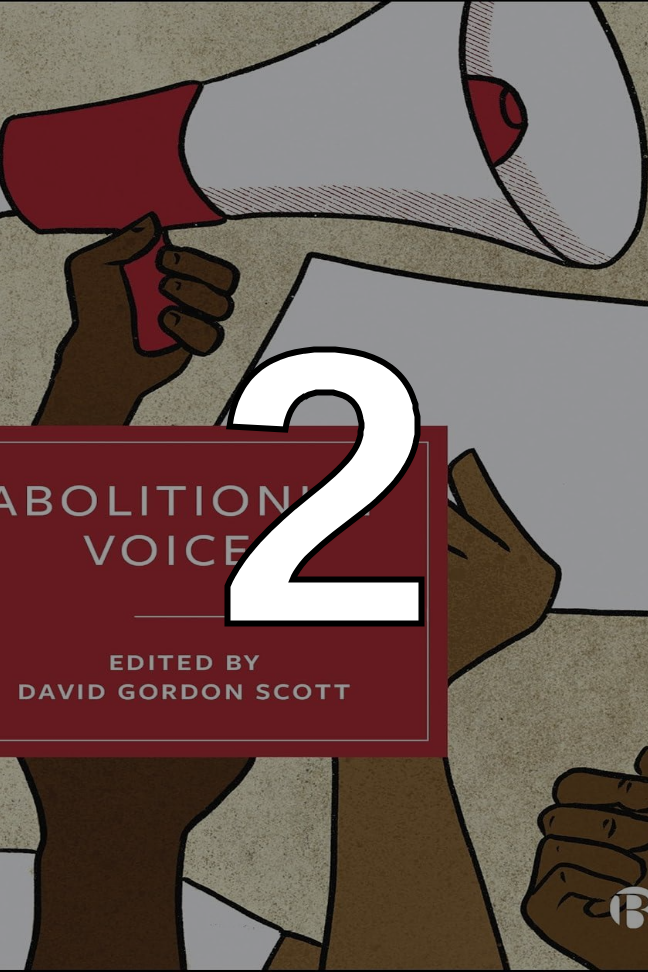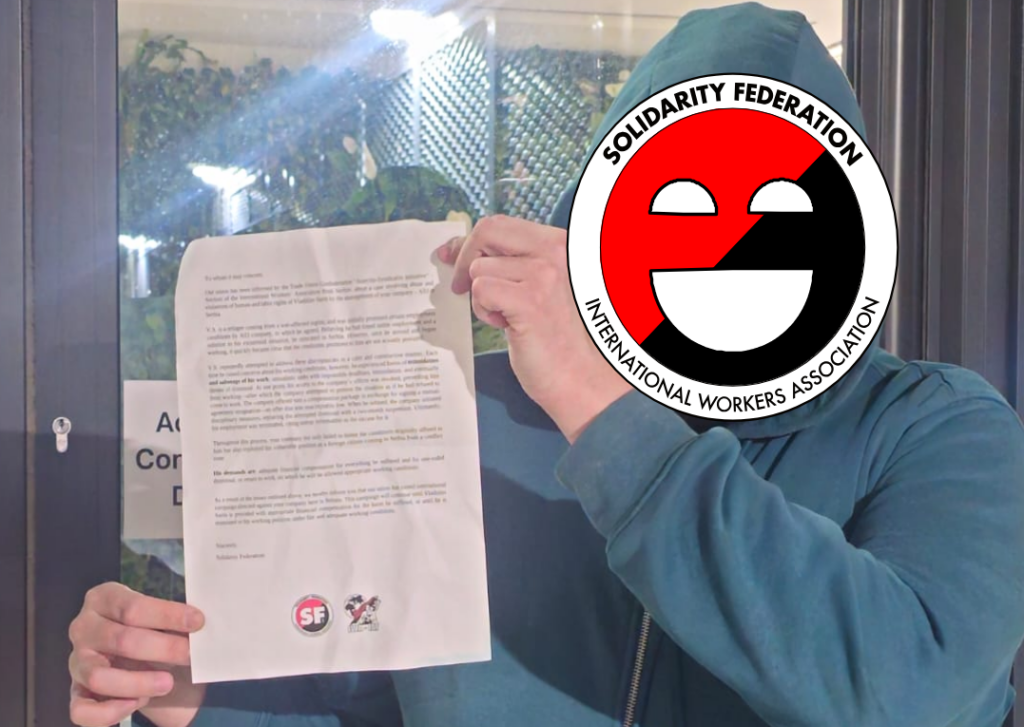In mid 2025 it came to the attention of Solidarity Federation (SolFed) in London that transphobes were organising in the workplace under the banner of the Sex, Equality, and Equity Network (SEEN). A brief look at SEEN made it clear that this network was “gender critical”, or transphobic, but attempting to hide it behind a mask of fake feminism and liberal civility. London SolFed did some additional research into SEEN and produced a report for the wider federation in November 2025. This is a lightly edited version of that report for wider consumption.
We had initially intended to do a far more detailed report than this one, but it quickly became clear that this topic was beyond our capacity to cover in depth. We found 21 different transphobic professional associations operating in various industries, all networked together and into the wider transphobic milieu but without any formal central organisation. This represents a serious attempt to spread and defend transphobia in the workplace on a scale which we can not do a detailed analysis of in timely manner. Instead, we hope this broad overview still proves useful and that other can use this as a basis for their own work.
This report is based off of what can be found out about these associations from browsing their websites and social media accounts. This puts serious limits on what we can say about the on-the-ground composition and activity of each of these networks. Are these astroturfed organisations with no real presence in any workplace? Do they represent a membership scattered across each industry? Do they represent a membership concentrated in specific workplaces within each industry? These are important questions that can not be answered without a more specific, in-depth, and hands-on investigation into each of the individual networks.
Likewise, we can not make a firm judgement to the degree to which these associations meaningfully cooperate. While they lack a formal overarching organisation, the extent to which they are tightly organised along informal lines is something that is hard to say from the kind of broad but shallow investigation we have presented here, beyond the limited information that can be gained by looking at who is sharing who on social media, and announcements of open joint events.
A Brief History of SEEN
Most of these associations uses a similar SEEN branding, however there are a few associations that pre-date SEEN. The first of these professional associations, at least the first we could find that is still active, was the Evidence-Based Social Work Alliance (EBSWA) which now also goes by SEEN in Social Work, set up in 2020.
The next wave of associations came out of the healthcare sector. Thoughtful Therapists was founded in early 2021 and in 2024 launched a spin-off project, Just Therapy, which is a network of therapists which believe “much of the world of psychotherapy and counselling has been taken over by activists and ideologies”. With Woman, an association of maternity and women’s healthcare workers, was also founded in early 2021. The Clinical Advisory Network on Sex and Gender (CAN-SG), a doctors’ association, seems to have been founded in early 2022 and Transgender Map has done their own research into them, describing them as “an anti-transgender front group” who are “heavily involved in trying to stop NHS from conducting clinical trials on puberty blockers.”
These pre-SEEN associations have remained fairly active in terms of their online presence with well maintained websites, active social media accounts, and offer an unfortunate wealth of propaganda and other resources. From what can be seen on their social media accounts they are also networked with each other, the later SEEN associations, and the general transphobic milieu, with at least members of With Woman attending a 2024 meeting of transphobic professional associations.
In late 2022 the original SEEN network was founded as a professional association for civil servants. This seems to be an important moment in the birth of this broader network as all of the associations following this one share a general SEEN branding. Early 2023 then saw the launch of SEEN in the city, a network for people working in finance. After a gap of a year there was then an explosion in organising under the SEEN banner. In the first half of 2024 networks were launched for police, HR, parliamentary workers, science and technology, journalism, sport, schools, health, local authority workers, publishing, trade unions, and the Church of England. Third Sector SEEN then launched in late 2024 and SEEN on Campus launched in mid 2025.
All of these SEEN networks maintain a similar style and look and many of them have links on their sites to other SEEN networks. While there is no obvious coordinating organisation between these networks, the common branding and the fact that their seemed to be a concerted campaign to launch these networks in 2024 implies a significant level of informal coordination. From looking at the social media of these networks, they share content from the usual transphobic personalities and organisations and seem to be well embedded in that wider network. Of special note in this broader network is the charity Sex Matters which regularly puts up information about how to push transphobia in the workplace, hosted the previously mentioned meeting of transphobic professional associations, and also maintains a list of these associations that cover not just the SEEN networks but also the earlier associations that were launched before the SEEN branding became the dominant style among them.
Activity
Not all of these associations have been equally successful. Some already seem to be inactive with seven showing low levels of activity online, including the original civil service SEEN. Five more are moderately active online but do not seem to have developed much reach. The journalists network seems to be the most successful single network, with a publishing network also active that likely has some overlap. The healthcare sector is also a place of strength for these networks with not only an active SEEN network but also three active pre-SEEN associations. Combined, these associations probably rival the journalism network, although they have also had far longer to build up. The next most active seem to be the police, social work, and sport. Based on where it is most active, the SEEN network probably draws its support from the class of technocratic professionals with little clear reach into the rank and file working class.
In terms of the style of propaganda put out by these networks, they take great pains to avoid being open transphobes, emphasise that their views are legally protected, and attempt to pass themselves off as just concerned about “sex based rights”. This kind of tone likely sounds quite reasonable to people who do not know what they are looking at. The below quote from the original civil service SEEN’s about page represents this general tone well:
“The focus of our network is on challenging sex discrimination and upholding rights and protections that relate to sex (including the protections provided to those with the protected characteristics of sex, pregnancy and maternity and sexual orientation, as set out in the Equality Act 2010). We recognise that to achieve this and ensure sex equality and equity sometimes requires treating women and men differently, according to our different rights and needs.”
In terms of activities, these associations seem to mainly devote themselves to various forms of lobbying, professional networking, propaganda, and developing resources such as form letters and legal advice. Campaigning over controlling access to toilets seems to be a common activity among many of these associations, along with defending people who have come under pressure for transphobic attitudes and actions.
Causes for Concern
Even the most successful of these transphobic professional associations are probably still quite small but we think they pose a real threat in a variety of ways. Firstly, they are trying to build networks in sectors in which professionals have a lot of day to day power over trans people: healthcare, policing, social work, education, and government. In these sectors individual professionals or managers often have the capacity to ruin the lives of trans people just by the nature of their position, and a network of transphobic professionals has the capacity to help empower and defend its members even if they lack any kind of mass movement in the general workforce.
Secondly, transphobic opinions are already massively over-represented in the media compared to the size of the transphobic milieu and SEEN networks have a well developed shared propaganda approach that makes them look as reasonable as they can given the implications of their actual ideas. I can see this approach leading to quit a few people who are not tuned in to what exactly they are looking at treating these SEEN networks as genuinely concerned with feminism and any attacks on them as attacks on feminism. The strength of SEEN in Journalism gives the network further propaganda advantages over any union or political group that may end up confronting them. Any counter-propaganda will have to be very careful and take pains to point out the actual implications behind all their polite wording and the links that they have to other transphobic organisations that are not as consistently slick in their messaging.
Lastly, given that transphobia is rapidly becoming a point of shared agreement among the ruling class of this country, with both Labour and the Conservatives being various forms of terrible on the issue and Reform being on the rise, it is possible that these networks will be able to punch well above their weight in terms of influence. While they may not represent a mass movement of workers, if they represent views that high level managers, capitalists, and politicians already agree with then they will be able to call on the power of state and capital without the need to develop a true broad based mass movement.
Given that much of the SEEN network was only set up in 2024, possibly by a coordinated campaign, it is also worth considering that we have not seen the end of attempts to set up new associations or that currently low activity associations may be able to build into more active organisations. Even the oldest of these associations is only five years old, so it is hard to judge from what we have already seen just how far these networks could expand. We also do not know what has driven the creation of these networks and what resources were required to build them up to their current level. If they are a grass roots development from transphobic professionals that has so far been built on limited resources, they could become far more dangerous if they find a rich and powerful benefactor that can give them serious funding and connections.
In any case, these networks provide yet another reason to be organised in our workplaces and to organise not just on the basis of pay and conditions but around broader social and political concerns. Transphobes need to get in the bin and given how transphobia is increasingly becoming political common sense among our rulers, it will come down to everyday people organising and fighting in our workplaces and our neighbourhoods to get it done.
Appendix
Below is a list of details on the transphobic professional associations we could find, with notes on their social media presence and activity online. Accurate as of November 2025.
EBSWA/SEEN in Social Work
Sector: Social Work
Founded: November 2020
Activity: High
Presence: Website – Fleshed out, Twitter – 4,400 followers, Facebook – 100 followers, YouTube – Inactive
With Women
Sector: Healthcare
Founder: February 2021
Activity: Medium
Presence: Website – Fleshed out, Twitter – 6,800 followers
Thoughtful Therapists
Sector: Healthcare
Founded: March 2021
Activity: High
Presence: Website – Fleshed out, Twitter – 6,500 followers
CAN-SG
Sector: Healthcare
Founded: February 2022
Activity: High
Presence: Website – Fleshed out, Twitter – 5,100 followers, YouTube – 290 followers
SEEN
Sector: Civil Service
Founded: October 2022
Activity: Low
Presence: Website – Fleshed out, Twitter – 2,500 followers
SEEN in the City
Sector: Finance
Founded: February 2023
Activity: Medium
Presence: Website – Bare bones, Twitter – 1,900 followers, LinkedIn – Company page
Police SEEN
Sector: Police
Founded: January 2024
Activity: Medium
Presence: Website – Bare bones, Twitter – 7,000 followers
SEEN in HR
Sector: Police
Founded: January 2024
Activity: Medium
Presence: Twitter – 2,800 followers, LinkedIn – 1,400 followers
SEEN in Parliament
Sector: Government
Founded: February 2024
Activity: Low
Presence: Twitter – 1,400 followers, Linktree – Bare bones
SEEN in STEM
Sector: Science and Technology
Founded: March 2024
Activity: Low
Presence: Twitter – 1,400 followers
SEEN in Journalism
Sector: Media
Founded: March 2024
Activity: High
Presence: Website – Unremarkable, Twitter – 21,400 followers, Substack – 2,500 followers, Has a podcast
SEEN in Schools
Sector: Education
Founded: March 2024
Activity: Low
Presence: Twitter – 1,600 followers
SEEN in Retail
Sector: Retail
Founded: March 2024
Activity: Low
Presence: Website – Unremarkable, Twitter – 1,100 followers
SEEN for CoE
Sector: Church
Founded: March 2024
Activity: Low
Presence: Twitter – 350 follower
SEEN in Sport
Sector: Sport
Founded: April 2024
Activity: Medium
Presence: Website – Unremarkable, Twitter – 4,900 followers
SEEN in Health
Sector: Healthcare
Founded: April 2024
Activity: Medium
Presence: Website – Fleshed out, Twitter – 3,600 followers
Local Authority SEEN
Sector: Government
Founded: April 2024
Activity: Medium
Presence: Website – Unremarkable, Twitter – 1,900 followers
SEEN in Publishing
Sector: Media
Founded: May 2024
Activity: High
Presence: Twitter – 4,600 followers, Substack – 620 followers
TU SEEN
Sector: Trade Union
Founded: July 2024
Activity: Medium
Presence: Twitter – 1,600 followers, Substack – 100 followers
Third Sector SEEN
Sector: NGO
Founded: September 2024
Activity: Low
Presence: Twitter – 1,600 followers, Substack – 100 followers
SEEN on Campus
Sector: Education
Founded: August 2025
Activity Low, but in formation
Presence: Website – Bare bones
